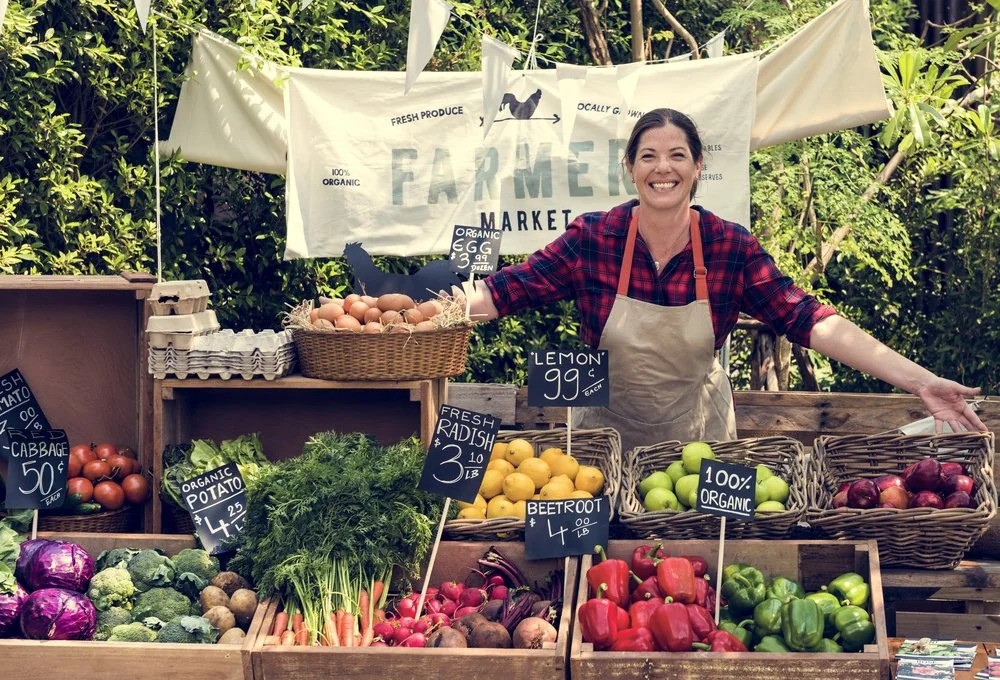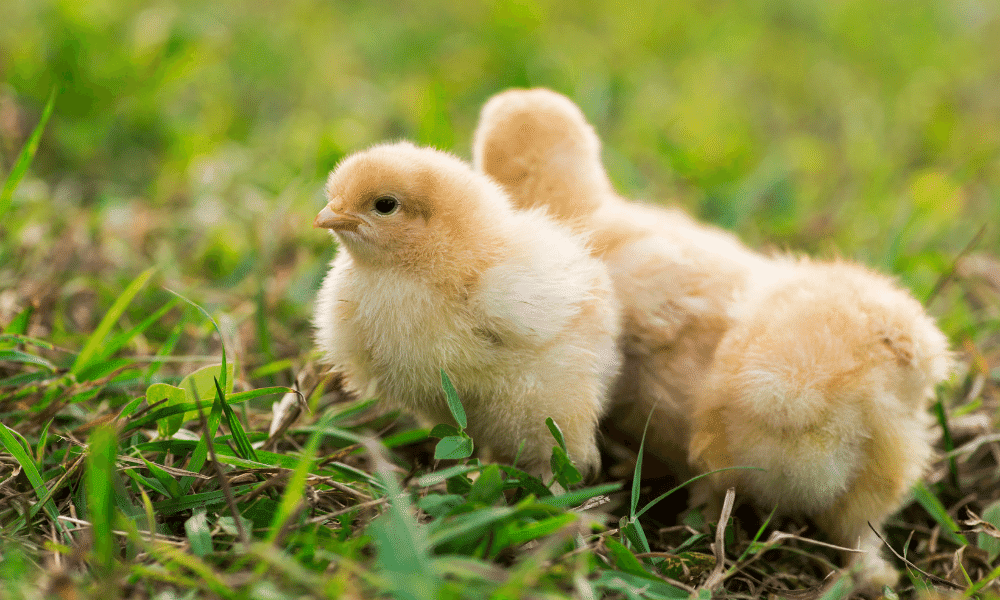4 Keys To Success to Raising Cornish Cross Chickens
Discover the fascinating world of Cornish Cross chickens, a remarkable breed meticulously developed through years of selective breeding, combining the White Rock and Cornish chicken breeds. This unique cross results in a bird that reaches maturity in just 6-8 weeks, boasting a substantial and flavorful carcass.
Contrary to popular belief, Cornish Cross chickens are not genetically modified organisms (GMOs). Instead, their genetic makeup has been carefully shaped through natural breeding methods. Are you looking to purchase your first Cornish Cross chicken? In this blog, we'll delve into the essentials of raising these unique birds, offering you four key insights to ensure a successful journey from farm to table.
Here are four keys to help you successfully raise your own Cornish Cross Chicken for the table!
Feed is Key
For the initial weeks of their lives, Cornish Cross chicks, like their counterparts, require chick starter. However, after approximately three weeks, a meat bird feed containing at least 20% protein becomes essential. It is recommended to opt for pellets or crumbles, as they are easier to digest compared to whole grain options. The inclusion of extra corn is unnecessary, as it can lead to excessive fat accumulation and elevate the bird's body temperature. Each bird is expected to consume approximately 15 pounds of feed throughout its eight-week lifespan.
The primary daily focus for a Cornish Cross chicken revolves around eating. These birds often position themselves around the chicken feeder, ensuring easy access to maintain their rapid growth rate. Despite the array of available feed options, prioritizing quality over cost is advised, especially if you are invested in raising your own meat. While grocery stores offer inexpensive chicken, investing a bit more in nutritious feed can translate to superior meat quality. If your chickens roam freely or have access to grass, this can partially offset feed expenses.
It is essential to recognize that a chicken's feed-to-meat conversion ratio tends to be less efficient in winter, as energy is diverted to maintaining warmth in cold conditions. Cornish Cross chickens also exhibit slower meat development in winter, resulting in smaller birds compared to those raised during spring within the same timeframe. Growing these birds beyond 10 weeks is discouraged, as their rapid development starts to manifest health issues.
Water is Key
Cornish Cross chickens drink lots of water every day to support their rapid growth. This is important to keep in mind in the warm season when they will drink even more and also in winter when it’s odd for chickens to be drinking that much liquid. A Cornish Cross will drink at least 3.5 gallons of water in 8 weeks, so it doesn’t take long for a dozen large birds to drain a 5-gallon waterer. It’s recommended to check your Cornish Cross’s water daily.
Adequate Shelter is Key
Essential considerations for raising meat chickens such as Cornish Cross birds include safeguarding them against the elements and maintaining an optimal temperature. Cornish Cross chickens exhibit sensitivity to both heat and cold conditions. They are prone to overheating in hot summer weather but thrive in cooler temperatures ranging from 65 to 85 degrees. Exposure to cold and wet conditions can be fatal for them.
The season you choose to raise meat birds and the weather your farm experiences will strongly influence how your meat bird coop is built. You can keep them in a coop or a mobile chicken tractor. It’s important to build Cornish Cross housing to be very predator-proof as they are unable to get away or defend themselves in any way.
They only need 2 square ft of space per bird but a little more is fine. If you are keeping them in a chicken tractor make sure to move them often, probably every day as they tend to gobble up all the grass floor very quickly with their voracious appetites. In a stationary coop, you can use a variety of substances on the floor for your meat birds like straw, pine shavings, or sand. Cornish Cross do not need roosting bars since they are heavy and cannot get off the ground.
Research Cornish Cross Unique Characteristics
The distinct needs of Cornish Cross chickens become increasingly evident as you delve into their characteristics. Due to their constant eating and drinking habits, they produce sizable droppings relative to their size. Regular cleaning of the coop or daily turning of bedding is essential, especially when employing a deep litter method. If housed in a chicken tractor, moving them daily can also rejuvenate their bedding.
There's ongoing debate regarding raising Cornish Cross alongside other chicken breeds. Some individuals report that their Cornish Cross outgrew and dominated others, displaying aggressive behavior during feeding and causing harm to smaller coop mates. However, others have successfully raised Cornish Cross with heritage chicks of similar age, with factors like space, food quantity, and overall bird temperament playing crucial roles.
Cornish Cross are prone to vitamin deficiencies, such as a B vitamin deficiency, leading to difficulties in walking, often mistaken for Marek's disease. Introducing Rooster Booster Poultry Cell to their water periodically can alleviate this condition. Additionally, they are susceptible to organ failure, exacerbated by excessive heat, temperature fluctuations, or other stressors. Timely butchering, ideally before 10 weeks, is crucial to minimize the risk of losing birds to premature death before processing for dinner.
Marketplace
You might also be interested in...

Shop for chickens, livestock or other farm goods

About Farm Expo Events

Sell Your Chicks and Eggs
Start Your Feathered Journey With Roobeez: Cornish Cross Chicks for Sale!
Are you eager to kickstart or expand your poultry journey? Look no further than Roobeez, your go-to online farmers marketplace. Search for a "chicken farm near me" and explore the availability of Cornish Cross chicks for sale! Whether you're buying or selling, experience the convenience of local transactions. Don't miss out — create your free account on Roobeez and embark on your feathered adventure!
The fun doesn’t have to end here.
Become a free Roobeez member for unlimited access to these features + more!
The Learning Library 📚
Get your hands on informational guides and expert advice on topics like livestock, homesteading, farming, small business, and more.
The Online Marketplace 🛒
Shop directly from your local small farms and artisans. As a seller, enjoy free advertisement and a dedicated storefront.
Exclusive Events 🎟️
Find local farm & homestead-related events. Experience the joy of local community connection!
You might also be interested in…















Discover farmers markets near you with Roobeez! Explore local events, find seasonal and weekly markets, and shop fresh produce and handmade goods on our marketplace. Contribute to our growing directory by adding your favorite markets and community events. Supporting local has never been easier!